5 most interesting findings about Red Planet
Mars has always attracted the attention of scientists. People have sent a lot of probes to discover interesting things in this red planet. The findings below will certainly surprise you.
Mars is also known as Mars, the fourth planet near the sun in the solar system, and the first planet to have orbit outside the Earth's orbit.
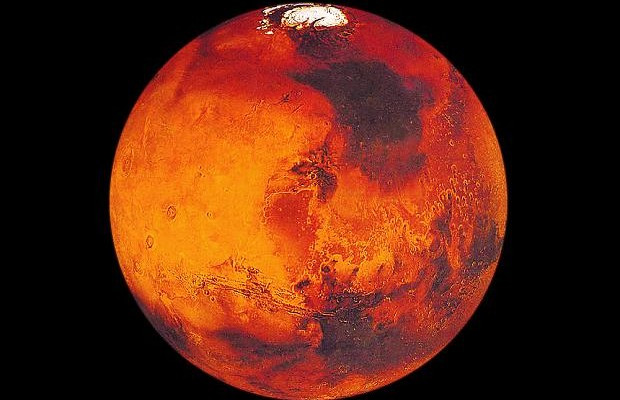
Rock and atmosphere on this planet are red or bronze so it is called " Red Planet ". Europeans call Mars Mars , the name given to the god of war in Roman mythology, and in Greek mythology, this god is called Ares.
Many people mistakenly think that Mars is a burning "fire" but not. Because Mars is farther away from the sun than Mars, Mars only receives half the light compared to Earth, so the temperature on Mars is always cold (Winter is usually at -87 ° C and summer at -5 ° C).
The 5 most interesting findings about the red planet are found by scientists.
1. Detect mysterious Morse code on Mars
In February 2016, a high-resolution scientific experiment camera (HiRISE) on board the Mars Reconnaissance Orbiter captured an image capturing strange dark sand chains on Mars. They look like dots and dashes that make up the Morse code system.
This is not the first time researchers have detected these shapes on sand in Mars. But unlike the previous photos, the photos collected this time in the land near the north pole of Mars have more detail. This allows scientists to have a chance to further study the formation of these dunes.
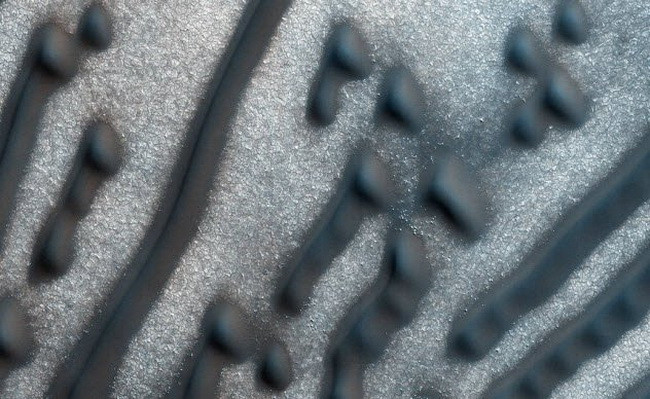
Photo of NASA / JPL / University of Arizona
Some geological physicists say they are made up of something that prevents the forming process of these stretching sand dunes. However, they still cannot determine what it is.
2. Detecting evidence that Mars experienced ice age
From the data sent from the spacecraft Mars Reconnaissance Orbiter, scientists from the Southwest Research Institute in Boulder, Colorado (USA) have discovered a lot of evidence that Mars has experienced a time The ice age is harsher than on Earth.
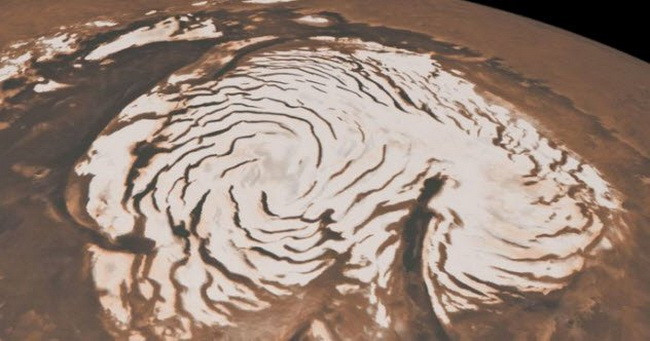
NASA photos via Popular Mechanics
The team recorded a maximum ice thickness of 320 m on the polar regions, matching previous estimates in 2003 and 2007. This proves that the scientific community has actually identified the recent ice age. most of Mars. Using these measurements, experts can calculate the volume of water moving between poles and latitudes, thereby understanding the Martian climate.
3. Mars has more water than the Arctic Ocean
Although the ocean's position on Mars has not been determined yet, scientists agree that the red planet once had a lot of water . NASA said that more than 4 billion years ago, Mars was covered by water up to 137 meters deep. Since then, nearly all of these countries have evaporated into space.
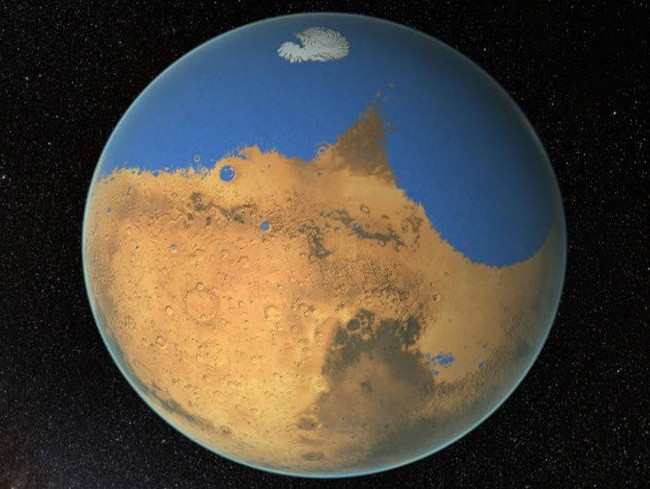
Photo of NASA / GSFC
Statistics show that the size of these oceans is larger than the Arctic Ocean and it is equivalent to 19% of Mars's surface area. And it is possible to have some life on Mars longer than previously thought.
4. There was a tsunami up to 120 meters high on Mars
Based on satellite imagery, scientists predict, the red planet may have experienced two terrifying " super tsunamis" that occur millions of years apart. According to the study, wave heights of up to 120 meters sweep into the interior of a few hundred kilometers. This demonstrates that one third of the planet's surface area was once covered by the ocean.
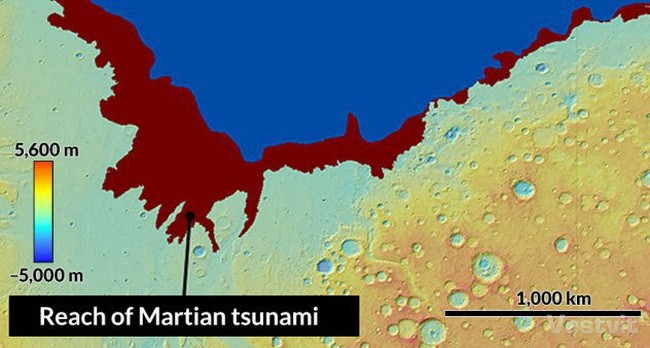
Photo Science News
5. Vegetables grown on Mars are completely edible
Scientists at the Wageningen University in the Netherlands have experimented with growing beets, beans, rye and tomatoes on mixed soils on " Red Planet ". After being tested to contain no heavy metals, 4 vegetables grown on "Mars " soil are safe for users' health.
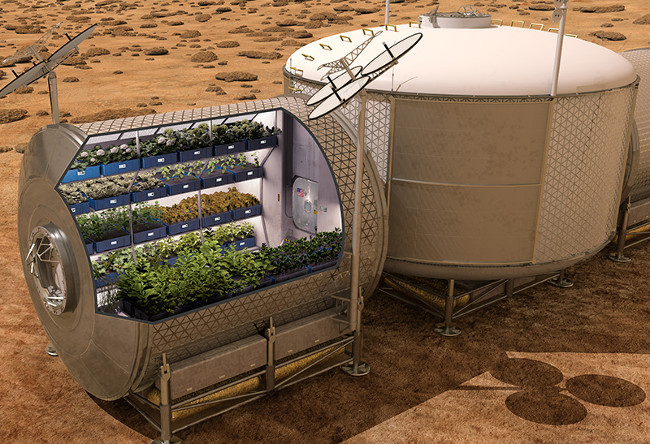
A model of growing vegetables on Mars.(Photo: NASA)
"The results are very desirable. We can absolutely eat this radish, peas, rye, tomatoes as usual, and I am very curious to know their taste. The more vegetables you need to experiment with, the better it is to ensure that Mars can grow a variety of crops, " said ecologist Wieger Wamelink.
In the future, when people put on this planet, they can completely supply themselves with food.
You should read it
- ★ The answer to the disappearance of water on Mars already exists
- ★ Why are microorganisms living 'so tough' on Earth but still hard to survive on Mars
- ★ The strangest objects ever taken on Mars surprised many
- ★ NASA 'Mars' helicopter model is almost ready for the journey to conquer Red Planet
- ★ NASA reveals its latest snapshot of the Martian surface with a resolution of 1.8 billion pixels